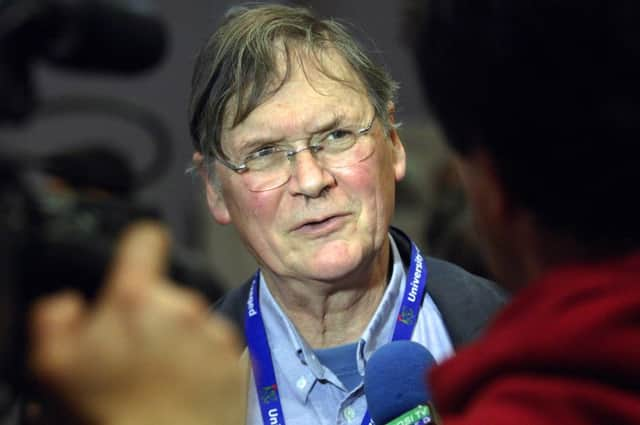Leaders: Time for brakes on social media train


His observations caused offence. Women scientists felt demeaned and he was roundly and ferociously denounced on social media before he gave a rushed and poorly phrased apology. Far from the controversy subsiding, it reached new peaks. Now the expert on cell biology, who won a Nobel Prize in 2001, has been forced to resign from his post at University College London (UCL), his professional life effectively over.
Many will feel he deserves little sympathy. His remarks, which he said were not intended to be taken seriously and were meant to be jocular, have upset many. A cack-handed apology that left the impression that he didn’t really mean it may have dealt the killer blow where a full and unqualified apology might have spared him. So those in the public spotlight have to be careful in a world so ferociously policed by social media, not just in what you say (and who you say it to) but in how you unsay it. An academic of his experience and standing surely needs no tutorials on the importance of words.
Advertisement
Hide AdAdvertisement
Hide AdThat his downfall has proceeded so swiftly is further testimony to the power of social media, not only to expose such remarks but to wreak a dramatic professional destruction. It speaks to a new era of public discourse – one in which we are able to abuse people and institutions with cruel and vicious language at the press of a Twitter button but at the same time wreak a censorious revenge on those with whose opinions we disagree. It is a fiery and destructive convergence of opposites.
In a remarkably short of time social media has become as powerful as a wrecking ball.
As the blaze subsides, some uncomfortable questions need to be asked about this episode. How far should punishment and retribution run? Who, if anyone, is in control of it? Was it the intention of his social media critics to expose him and seek a full apology, or to destroy his academic life?
What allowance should be made for a lifetime of research and achievement in his field, culminating in a Nobel Prize? Was it right that UCL should demand his instant resignation, without so much as a hearing or an opportunity for him to explain himself and to offer a full and unqualified apology?
The problem with social media is that it has very quickly become a runaway train with no brakes. It seems unable to halt at the station marked Censure and Apology but ploughs on at full speed towards complete career destruction.
The reaction of UCL in particular has the taint of a rush to judgment. Just as Hunt himself has discovered, we all need pause to consider the power of words.
Inexperience can be a virtue
Scottish Labour leader contender Ken Macintosh may have thought he was just stating the obvious when he pointed to the inexperience of his rival, Kezia Dugdale.
It is certainly true that her rise has been swift. She was only elected as a list MSP in 2011, given a shadow cabinet position in 2013 and elected deputy leader last year. Her feet have barely touched the ground.
Advertisement
Hide AdAdvertisement
Hide AdBut that is as much a testimony to her political persona and intelligence as to the party’s desire to promote fresh faces. And after its savage mauling in the May general election, which left it with just one MP in Scotland and led to the resignation of Jim Murphy, a totally fresh face and style are now needed.
Scottish Labour suffered grievously from a perception that it was a party of old men whose best years were behind them and who had little new or exciting to say. In the party’s present desperate condition the charge of inexperience may well be seen as a virtue – Ms Dugdale is untainted by the party’s performance in the past but is also open to new ideas. Inexperience is hardly a telling taunt. That Ms Dugdale has shown such promise at an early stage speaks to her candidacy as a prospective leader.
There is certainly no avoiding the hurdles that in the past have brought even the most experienced crashing down.
But Scottish Labour has a long haul ahead of it. It has to reconfigure its appeal, win back female voters and attract many more young people to its ranks. It is not so much previous form that Labour needs but a forward-looking mindset and persona to pull off this Lazarus-like miracle.